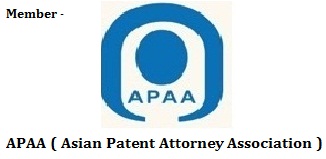‘John Doe’ order against Unidentified Defendant for infringement in India
Meaning of John Doe –
MEANING AND ORIGIN ‘John Doe’ has its origin in the reign of England’s King Edward III when the orders were used to refer to unidentifiable defendant. Oxford Dictionary defines John Doe as an “Anonymous Party”. In Canada, John Doe order were resorted to by owners of IPR in order to preserve evidence against unknown infringers by allowing the representatives of the Plaintiff to search and seize infringed products. Once identified the term John Doe is replaced with the name of the Defendant . It is an established concept in America, Australia and UK. In the matter of Billy Joel v. Various John Does , a popular order which has been consistently relied upon by parties it has been interalia held: “Were the Injunction to be denied, Plaintiffs would be without any legal means to prevent what is clearly a blatant infringement of their valid property rights. While the proposed remedy is novel, that in itself should not weigh against its adoption by this Court. A court of equity is free to fashion whatever remedies will adequately protect the rights for the parties before it.
Example Case –
Calcutta High Court: A Single Judge Bench comprising of Soumen Sen, J., addressed the grievance of the petitioner who has prayed for the passing of “John Doe” order against the respondents who are responsible for the infringement of petitioner’s copyright and trademark.
The brief facts of the case are that the petitioner is involved in the business of B2B e-commerce portal and since its inception in the year 1996, he had coined and adopted a unique mark known as “INDIAMART” for use in connection with the goods and services falling under various categories. He also claims that he has been using the said mark regularly and also got it registered in various forms as a wordmark, logo mark, label mark, and device mark. The petitioner has furnished all the details for the said registrations.
In regard to the copyright and trademark infringement, petitioner became aware of respondent’s having slavishly imitated the petitioner’s unique mark “INDIAMART” in one form or the other. For the said claim, petitioner’s have successfully disclosed all the copies which show that the petitioner’s mark is being infringed. One of the claims being put forward by the petitioner is that clearly the respondent’s have tried to confuse and deceive the public over the reputation of the plaintiff’s mark. Further, it has been stated by the petitioner that the respondents have infringed the copyright of the petitioner by using the proprietary information/data including such information, etc. which comes under the literary works of the petitioner.
Therefore, the petitioner has demanded the blocking of such websites which clearly are constituting to piracy and violation of the copyright and trademark use of the petitioner and on that note, he has prayed for John Doe orders of injunction.
The Hon’ble High Court, by recording the documents furnished by the petitioner and the fact that respondents have slavishly imitated the trademark of the petitioner which brings the Court to the claim of the petitioner about its goodwill and thereby allowing the relief to the petitioner as prayed for and concluding by giving direction to the petitioner to communicate this order to all the defendants. [Indiamart Intermesh Ltd. v. Ankit; 2018 SCC OnLine Cal 2379; dated 16-05-2018]
COMPLEXITIES in John Doe –
Since the concept of granting John Doe order has evolved from judicial proactiveness it is tough to determine its precise limits. The procedure that needs to be followed in granting and executing these orders vary with regard to the cases in which it has been granted. The John Doe orders may thus lead to many complexities which may include the following.
- Improper implementation of orders: John Doe orders may be improperly implementedand may harm the rights of the legitimate third parties. In the Singham case , after obtaining the order the Plaintiff sent a list of file sharing sites to ISPs, asking them to stop them from pirating the movie. The ISPs, unable to prevent piracy, blocked entire file sharing websites. Consequently, many users who use these sites for legitimate purposes were unable to access the sites. It is pertinent to note thatin the case of IPRS v. Mr. Badal Dhar Chowdhry , the Court held that vague/ indefinite injunctions should not be issued.
- Jurisdiction of the defendants: When 100 John Does are named in a single case based solely on numerical internet protocol addresses. Many of them are outside the jurisdiction of theCourts. Thus, a question may arise whether the cause of action has arisen within the jurisdiction of the Courts.
- Joining different defendants in one suit: Another question to be considered in such cases is whether the defendants residing in different jurisdictions can be joined as defendants in the same suit. John Doe is still in its nascent stage in India and the concept will eventually evolve when more cases are brought before the Court. John Doe orders are always passed subject to the legitimate rights of the parties and do not affect the rights of legitimate license holders in any manner. However, the Bombay High Court, in the recent pasthas taken a view that such blanket orders cannot be passed unless the Plaintiff can show actual incidents of breach or acts which are likely to result in such a breach . Moreover the actual implementation of the orders is in itself a challenge for the Plaintiff. It is important for the judiciary to lay down the precise nature and limit of such orders so that they are effectively implemented and/or would aid in effective enforcement of the Orders.


